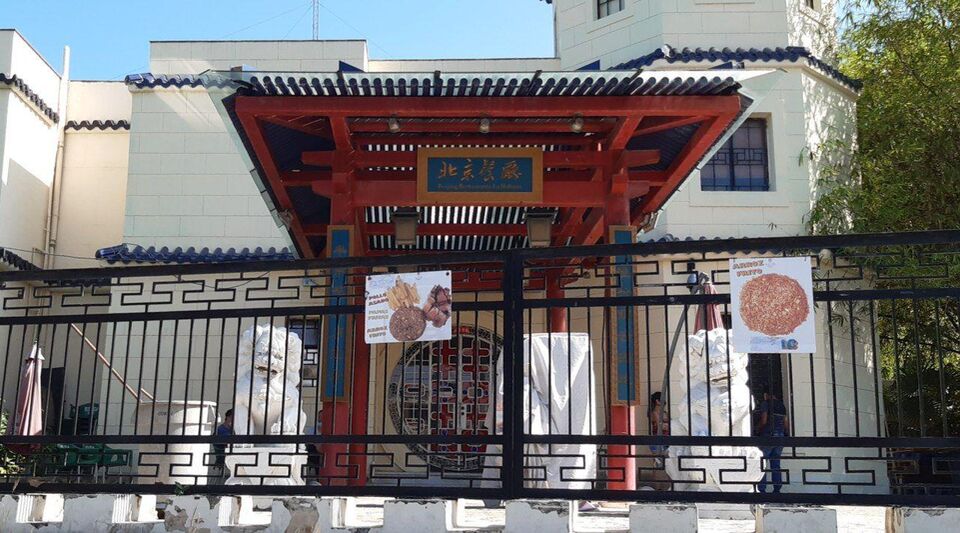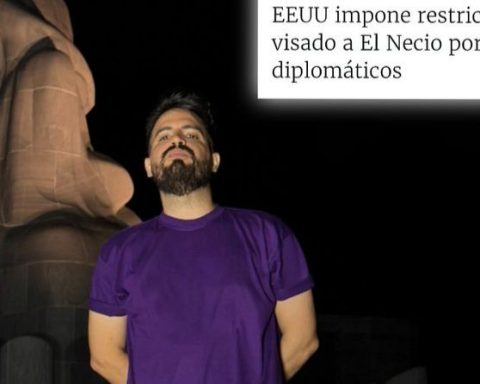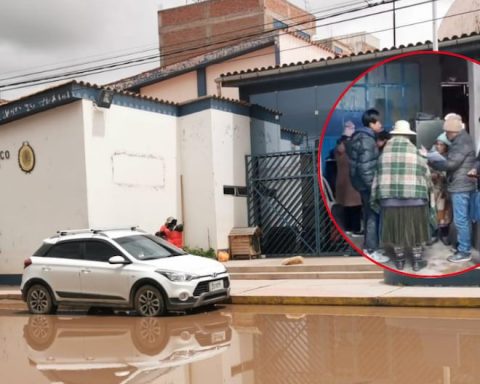The brand new Chinese restaurant that Xi Jinping promised Raúl Castro during a visit to Cuba in 2014 has become a candonga (sale stall). Its useful life has been limited to six sad months and now, after the reopening of gastronomic services in Havana, it keeps its doors closed and hardly sells wheels of cigars and tomato sauce “to go.”
The pandemic has given the final blow to a place that was, from the beginning, conceived for tourism and the diplomatic corps. Its location is already a good indication of this. Located a few meters from the emblematic Iron bridge linking El Vedado in the capital with the residential neighborhood of Miramar, in the 7th avenue Between 2 and 4, in the municipality of Playa, is the mansion built in the 1930s that houses the Beijing.
Millions of dollars were needed to refurbish it, and the interior was decorated with an image of Fidel Castro in the reception area and others of Mao Zedong, Xi Jinping and Raúl Castro, among others, already in the hall.
The restaurant was opened in August 2019, five years after the announcement and two years after the planned date, by the then Chinese ambassador to the island, Chen Xi. The place, with a capacity of more than 120 diners, offered more than 50 typically Chinese dishes, without the usual Cubanization of the Asian country’s cuisine. This was its greatest attraction, although from the beginning it made it very clear the type of public it was looking for, by having its entire menu in convertible pesos.
“The fried rice was the most expensive in Cuba, a portion for 10 CUC (250 pesos), and it was nothing to write home about,” says Pablo, a cook at a palate in Old Havana who decided to try the Beijing food a month after it opened. “On top of that, the Chinese beans were missing because the day I went it had finished. All the main dishes were above 18 CUC and that day they didn’t have beef either,” he tells 14ymedio. “Back then, I advised my friends that if they wanted Asian food, they should still go to Chinatown, because it was so much better and cheaper.”
A modest dinner for a couple, with a starter, main course, dessert and drink, meant spending around 60 CUC. “A place like this was a novelty for us,” recalls a young man who attended with his girlfriend in the first days after the inauguration, “but we couldn’t go back soon. It was a high-flying luxury that our pocketbook didn’t allow.”
“Shortly after providing services, customers began to stop coming, the place remained empty for long hours,” says a former Beijing employee who requested anonymity. 14ymedio. “The salary they gave us was rubbish compared to how expensive they sold everything and that led to the diversion of products in the kitchen.”
The worker reveals that the annoyance due to the low wages led the employees to sell Chinese sauce, tomato sauce and even olives in the informal market. “I couldn’t handle that anymore and I left shortly after starting there,” he recalls.
Even though the project had the blessing of Chinese and Cuban autocrats, the deal was slow to materialize. Not only that, it encountered the usual obstacles to establishing itself on the island. The restaurant was the first wholly foreign-owned company in Cuba (Beijing Enterprises Group), but it had to acquire most of its ingredients through Cimex, the entity of exports and imports run by the Cuban military. This is how the idea of a traditional Chinese cuisine was degenerating into mixtures little attractive by diners.
Li Sha, who helped run the restaurant, told a report in the British weekly The Economist that the ducks they served came from Canada. “Their skin is thicker than Chinese ducks, so it’s not as crispy.” Something similar happened with the sweet and sour fish, which was made with Cuban snapper, and not with mandarin fish. “Although it’s tasty, it has a lumpier meat and looks like fried cauliflower,” he added. You couldn’t easily buy eggs or tomatoes either, so the sautéed dish with those ingredients had to be excluded from the menu.
The restaurant was the first wholly foreign-owned business in Cuba, but had to purchase most of its ingredients through Cimex
The omens that the readers had poured into the news of the inauguration of the official Cubadebate confirmed in record time. “We are going to see how long the beautiful installation and its wonderful dishes last,” read one of the comments. “Like everything in our country, it starts well and in the end everything is a disaster,” replied another. “The prices must be around China, I hope I can eat a lobster in hot cheese when they raise my salary, because now I can’t even dream of visiting that place,” added another.
They were not wrong.
Although the circular main doors are painted with the huge red ideogram “shuang xi”, which means “double happiness”, and that it didn’t exist a table number four because it is a number that is considered unfavorable in China, Beijing has not managed to survive the last blow: the pandemic.
The closure of borders and gastronomic services for months have sunk what little remained of Beijing, so much so that at the end of September, when the list of restaurants that were reopening their doors was announced, the place was not among those who decided to try to resist. despite the limitation of capacity to 50% and, although it has not closed, it has limited its offer to home sales. Limited.
“I was moved when I saw some posters on the huge fence announcing attractive and cheap combos, such as fried rice, roast pork and fries for only 250 pesos, among others,” he tells 14ymedio Maritza, a young resident of the municipality of Centro Habana who came on Sunday to check the offers.
“But to my surprise those signs were old and currently they only sell cigarettes and tomato sauce. It looked like a garage sale and the saleswoman did not want to explain to me why they still had the salon closed. ‘Maybe in March we will open again’, It was the only thing he told me”.
________________________
Collaborate with our work:
The team of 14ymedio is committed to doing serious journalism that reflects the reality of deep Cuba. Thank you for joining us on this long road. We invite you to continue supporting us, but this time becoming a member of our newspaper. Together we can continue transforming journalism in Cuba.

















